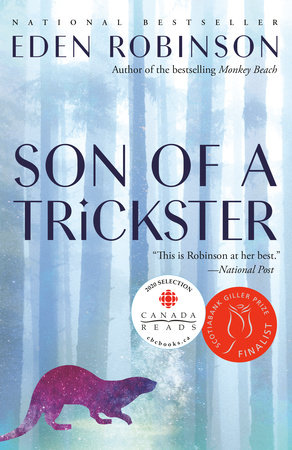Hidden Valley Road: Inside the Mind of an American Family by Robert Kolker
The heartrending story of a midcentury American family with twelve children, six of them diagnosed with schizophrenia, that became science's great hope in the quest to understand the disease.
Don and Mimi Galvin seemed to be living the American dream. After World War II, Don's work with the Air Force brought them to Colorado, where their twelve children perfectly spanned the baby boom: the oldest born in 1945, the youngest in 1965. In those years, there was an established script for a family like the Galvins—aspiration, hard work, upward mobility, domestic harmony—and they worked hard to play their parts. But behind the scenes was a different story: psychological breakdown, sudden shocking violence, hidden abuse. By the mid-1970s, six of the ten Galvin boys, one after another, were diagnosed as schizophrenic. How could all this happen to one family?
What took place inside the house on Hidden Valley Road was so extraordinary that the Galvins became one of the first families to be studied by the National Institute of Mental Health. Their story offers a shadow history of the science of schizophrenia, from the era of institutionalization, lobotomy, and the schizophrenogenic mother to the search for genetic markers for the disease, always amid profound disagreements about the nature of the illness itself. And unbeknownst to the Galvins, samples of their DNA informed decades of genetic research that continues today, offering paths to treatment, prediction, and even eradication of the disease for future generations.
With clarity and compassion, bestselling and award-winning author Robert Kolker uncovers one family's unforgettable legacy of suffering, love, and hope.
Redhead by the Side of the Road by Anne Tyler
From the beloved and best-selling Anne Tyler, a sparkling new novel about misperception, second chances, and the sometimes elusive power of human connection.
Micah Mortimer is a creature of habit. A self-employed tech expert, superintendent of his Baltimore apartment building, cautious to a fault behind the steering wheel, he seems content leading a steady, circumscribed life. But one day his routines are blown apart when his woman friend (he refuses to call anyone in her late thirties a "girlfriend") tells him she's facing eviction, and a teenager shows up at Micah's door claiming to be his son. These surprises, and the ways they throw Micah's meticulously organized life off-kilter, risk changing him forever. An intimate look into the heart and mind of a man who finds those around him just out of reach, and a funny, joyful, deeply compassionate story about seeing the world through new eyes, Redhead by the Side of the Road is a triumph, filled with Anne Tyler's signature wit and gimlet-eyed observation.
Son of a Trickster by Eden Robinson
With striking originality and precision, Eden Robinson, the Giller-shortlisted author of the classic Monkey Beach and winner of the Writers Trust Engel/Findley Award, blends humour with heartbreak in this compelling coming-of-age novel. Everyday teen existence meets indigenous beliefs, crazy family dynamics, and cannibalistic river otter . . . The exciting first novel in her trickster trilogy.
Everyone knows a guy like Jared: the burnout kid in high school who sells weed cookies and has a scary mom who's often wasted and wielding some kind of weapon. Jared does smoke and drink too much, and he does make the best cookies in town, and his mom is a mess, but he's also a kid who has an immense capacity for compassion and an impulse to watch over people more than twice his age, and he can't rely on anyone for consistent love and support, except for his flatulent pit bull, Baby Killer (he calls her Baby)--and now she's dead.
Jared can't count on his mom to stay sober and stick around to take care of him. He can't rely on his dad to pay the bills and support his new wife and step-daughter. Jared is only sixteen but feels like he is the one who must stabilize his family's life, even look out for his elderly neighbours. But he struggles to keep everything afloat...and sometimes he blacks out. And he puzzles over why his maternal grandmother has never liked him, why she says he's the son of a trickster, that he isn't human. Mind you, ravens speak to him--even when he's not stoned.
You think you know Jared, but you don't.
Nothing to See Here by Kevin Wilson
Kevin Wilson’s best book yet—a moving and uproarious novel about a woman who finds meaning in her life when she begins caring for two children with remarkable and disturbing abilities
Lillian and Madison were unlikely roommates and yet inseparable friends at their elite boarding school. But then Lillian had to leave the school unexpectedly in the wake of a scandal and they’ve barely spoken since. Until now, when Lillian gets a letter from Madison pleading for her help.
Madison’s twin stepkids are moving in with her family and she wants Lillian to be their caretaker. However, there’s a catch: the twins spontaneously combust when they get agitated, flames igniting from their skin in a startling but beautiful way. Lillian is convinced Madison is pulling her leg, but it’s the truth.
Thinking of her dead-end life at home, the life that has consistently disappointed her, Lillian figures she has nothing to lose. Over the course of one humid, demanding summer, Lillian and the twins learn to trust each other—and stay cool—while also staying out of the way of Madison’s buttoned-up politician husband. Surprised by her own ingenuity yet unused to the intense feelings of protectiveness she feels for them, Lillian ultimately begins to accept that she needs these strange children as much as they need her—urgently and fiercely. Couldn’t this be the start of the amazing life she’d always hoped for?
With white-hot wit and a big, tender heart, Kevin Wilson has written his best book yet—a most unusual story of parental love.
Before We Were Yours by Lisa Wingate
Memphis, 1939. Twelve-year-old Rill Foss and her four younger siblings live a magical life aboard their family’s Mississippi River shantyboat. But when their father must rush their mother to the hospital one stormy night, Rill is left in charge—until strangers arrive in force. Wrenched from all that is familiar and thrown into a Tennessee Children’s Home Society orphanage, the Foss children are assured that they will soon be returned to their parents—but they quickly realize the dark truth. At the mercy of the facility’s cruel director, Rill fights to keep her sisters and brother together in a world of danger and uncertainty.
Aiken, South Carolina, present day. Born into wealth and privilege, Avery Stafford seems to have it all: a successful career as a federal prosecutor, a handsome fiancé, and a lavish wedding on the horizon. But when Avery returns home to help her father weather a health crisis, a chance encounter leaves her with uncomfortable questions and compels her to take a journey through her family’s long-hidden history, on a path that will ultimately lead either to devastation or to redemption.
Based on one of America’s most notorious real-life scandals—in which Georgia Tann, director of a Memphis-based adoption organization, kidnapped and sold poor children to wealthy families all over the country—Lisa Wingate’s riveting, wrenching, and ultimately uplifting tale reminds us how, even though the paths we take can lead to many places, the heart never forgets where we belong.
Incidental Inventions by Elena Ferrante
"Elena Ferrante is the best-selling author of My Brilliant Friend, now an HBO original series. Collected here for the first time are the seeds of future novels, the timely reflections of this internationally beloved storyteller, the abiding preoccupations of a writer who has been called "one of the great novelists of our time" (New York Times).
"This is my last column, after a year that has scared and inspired me... I have written as an author of novels, taking on matters that are important to me and that--if I have the will and the time--I'd like to develop within real narrative mechanisms."
With these words, Elena Ferrante bid farewell to her year-long collaboration with The Guardian newspaper. For a full year, she wrote weekly articles, the subjects of which had been suggested by The Guardian editors, making the writing process a sort of prolonged interlocution. The subjects ranged from first love to climate change, from enmity among women to the experience of seeing her novels adapted for film and TV."
Braiding Sweetgrass by Robin Wall Kimmerer
As a botanist, Robin Wall Kimmerer has been trained to ask questions of nature with the tools of science. As a member of the Citizen Potawatomi Nation, she embraces the notion that plants and animals are our oldest teachers. In Braiding Sweetgrass, Kimmerer brings these lenses of knowledge together to show that the awakening of a wider ecological consciousness requires the acknowledgment and celebration of our reciprocal relationship with the rest of the living world. For only when we can hear the languages of other beings are we capable of understanding the generosity of the earth, and learning to give our own gifts in return.
The Great Pretender: The Undercover Mission That Changed Our Understanding of Madness by Susannah Cahalan
From "one of America's most courageous young journalists" (NPR) comes a propulsive narrative history investigating the 50-year-old mystery behind a dramatic experiment that changed the course of modern medicine.
For centuries, doctors have struggled to define mental illness-how do you diagnose it, how do you treat it, how do you even know what it is? In search of an answer, in the 1970s a Stanford psychologist named David Rosenhan and seven other people -- sane, normal, well-adjusted members of society -- went undercover into asylums around America to test the legitimacy of psychiatry's labels. Forced to remain inside until they'd "proven" themselves sane, all eight emerged with alarming diagnoses and even more troubling stories of their treatment. Rosenhan's watershed study broke open the field of psychiatry, closing down institutions and changing mental health diagnosis forever.
But, as Cahalan's explosive new research shows, very little in this saga is exactly as it seems. What really happened behind those closed asylum doors, and what does it mean for our understanding of mental illness today?
Woman on the Edge by Samantha M. Bailey
A moment on the platform changes two lives forever. But nothing is as it seems...
'Take my baby.'
In a split second, Morgan's life changes forever. A stranger hands her a baby, then jumps in front of a train.
Morgan has never seen the woman before and she can't understand what would cause a person to give away her child and take her own life.
When the police question Morgan, she discovers none of the witnesses can corroborate her version of events. And when they learn Morgan longs for a baby of her own, she becomes a suspect.
To prove her innocence, Morgan frantically tries to retrace the last days of the woman's life. She begins to understand that Nicole Markham believed she and her baby were in danger. Now Morgan might be in danger, too.
Was Nicole a new mother struggling with paranoia?
Or was something much darker going on?
Pulse-pounding, heartrending, shocking, thrilling. This is one book you won't be able to stop thinking about.
Uncanny Valley by Anna Wiener
The prescient, page-turning account of a journey in Silicon Valley: a defining memoir of our digital age
In her mid-twenties, at the height of tech industry idealism, Anna Wiener—stuck, broke, and looking for meaning in her work, like any good millennial--left a job in book publishing for the promise of the new digital economy. She moved from New York to San Francisco, where she landed at a big-data startup in the heart of the Silicon Valley bubble: a world of surreal extravagance, dubious success, and fresh-faced entrepreneurs hell-bent on domination, glory, and, of course, progress.
Anna arrived amidst a massive cultural shift, as the tech industry rapidly transformed into a locus of wealth and power rivaling Wall Street. But amid the company ski vacations and in-office speakeasies, boyish camaraderie and ride-or-die corporate fealty, a new Silicon Valley began to emerge: one in far over its head, one that enriched itself at the expense of the idyllic future it claimed to be building.
Part coming-age-story, part portrait of an already-bygone era, Anna Wiener’s memoir is a rare first-person glimpse into high-flying, reckless startup culture at a time of unchecked ambition, unregulated surveillance, wild fortune, and accelerating political power. With wit, candor, and heart, Anna deftly charts the tech industry’s shift from self-appointed world savior to democracy-endangering liability, alongside a personal narrative of aspiration, ambivalence, and disillusionment.
Unsparing and incisive, Uncanny Valley is a cautionary tale, and a revelatory interrogation of a world reckoning with consequences its unwitting designers are only beginning to understand.
Our Wild Calling by Richard Louv
“Richard Louv has done it again. A remarkable book that will help everyone break away from their fixed gaze at the screens that dominate our lives and remember instead that we are animals in a world of animals.” —Bill McKibben, author of Falter
Richard Louv’s landmark book, Last Child in the Woods, inspired an international movement to connect children and nature. Now Louv redefines the future of human-animal coexistence. Our Wild Calling explores these powerful and mysterious bonds and how they can transform our mental, physical, and spiritual lives, serve as an antidote to the growing epidemic of human loneliness, and help us tap into the empathy required to preserve life on Earth. Louv interviews researchers, theologians, wildlife experts, indigenous healers, psychologists, and others to show how people are communicating with animals in ancient and new ways; how dogs can teach children ethical behavior; how animal-assisted therapy may yet transform the mental health field; and what role the human-animal relationship plays in our spiritual health. He reports on wildlife relocation and on how the growing populations of wild species in urban areas are blurring the lines between domestic and wild animals.
Our Wild Calling makes the case for protecting, promoting, and creating a sustainable and shared habitat for all creatures—not out of fear, but out of love. Transformative and inspiring, this book points us toward what we all long for in the age of technology: real connection.
Imagination: The Science of Your Mind’s Greatest Power by Jim Davies
We don’t think of imagination the way that we should. The word is often only associated with children, artists and daydreamers, viewed as something separate from everyday adult life. However, imagination is an integral part of almost every action and decision that we make. Simply put, imagination is a person’s ability to create scenarios in his or her head: this can include everything from planning a grocery list, to honing a golf swing, and even to having religious hallucinations. And while imagination has positive connotations, it can also lead to more pernicious outcomes including decreased productivity and cooperation, and much worse, the continuous reliving of past trauma.
The human brain is remarkable in its ability to imagine—to create worlds and situations outside of its reality. We can imagine complex possible futures, fantasy worlds, and jars of peanut butter. We can use our imaginations to make us relaxed or anxious, and the most impressive feat of human imagination may be our ability to use it in creative endeavors. Sitting in a chair, with our eyes closed, we can imagine what the world might be, and construct elaborate plans. With such power, we have an obligation to use it for good—to make things better for ourselves, and for the world.
People have been fascinated with the machination of the human brain and its ability to imagine for centuries, but until now, there have been no popular science books that are dedicated to imagination. There are books on creativity, dreams, memory, and the mind in general, but how exactly do we create those scenes in our head? With chapters ranging from hallucination and imaginary friends to how imagination can make you happier and more productive, Jim Davies' Imagination will help us explore the full potential of our own mind.












